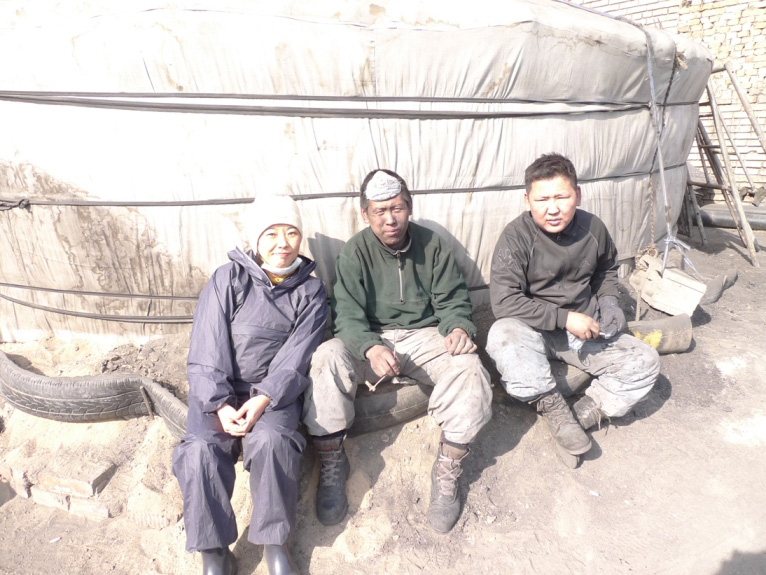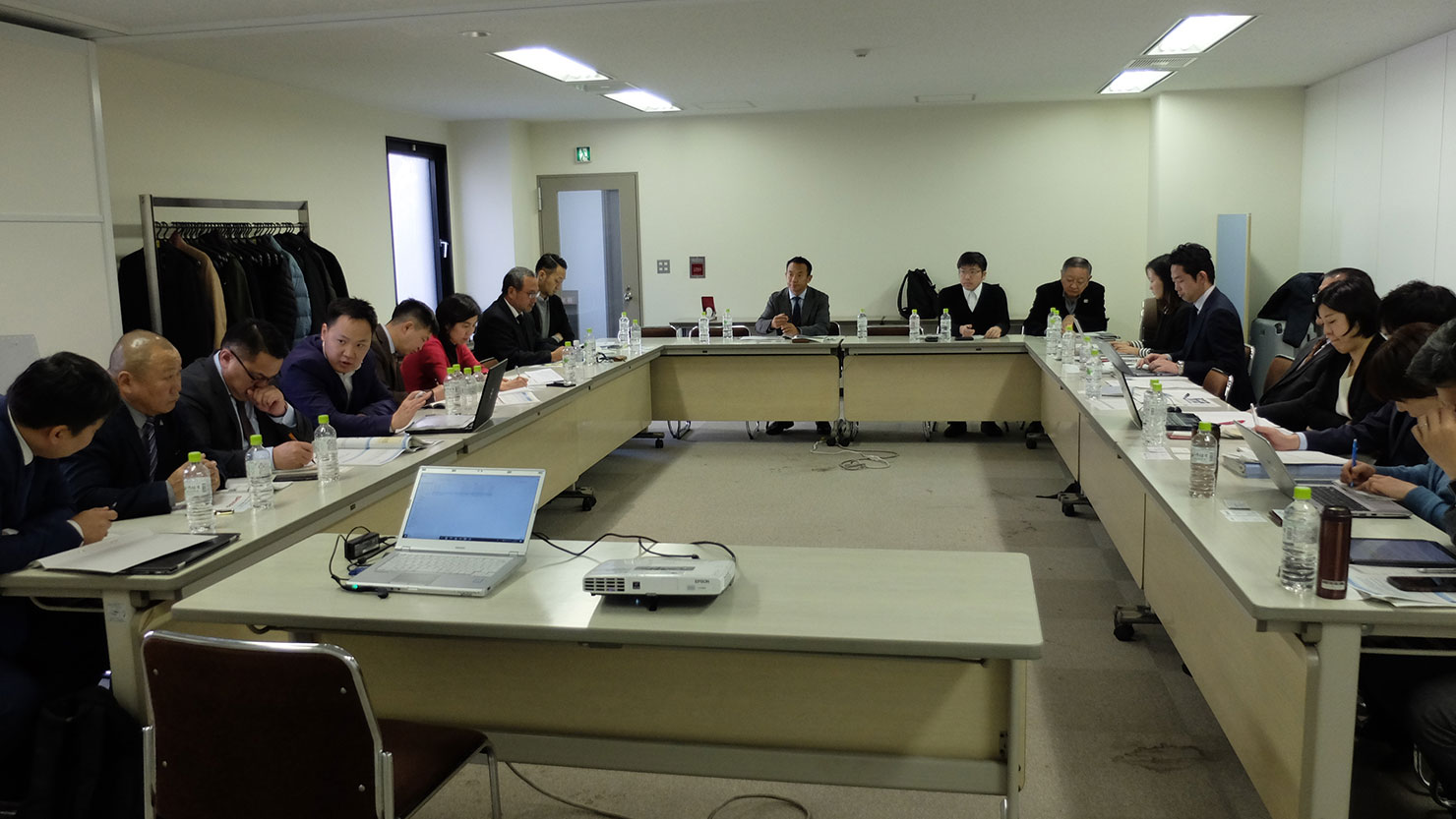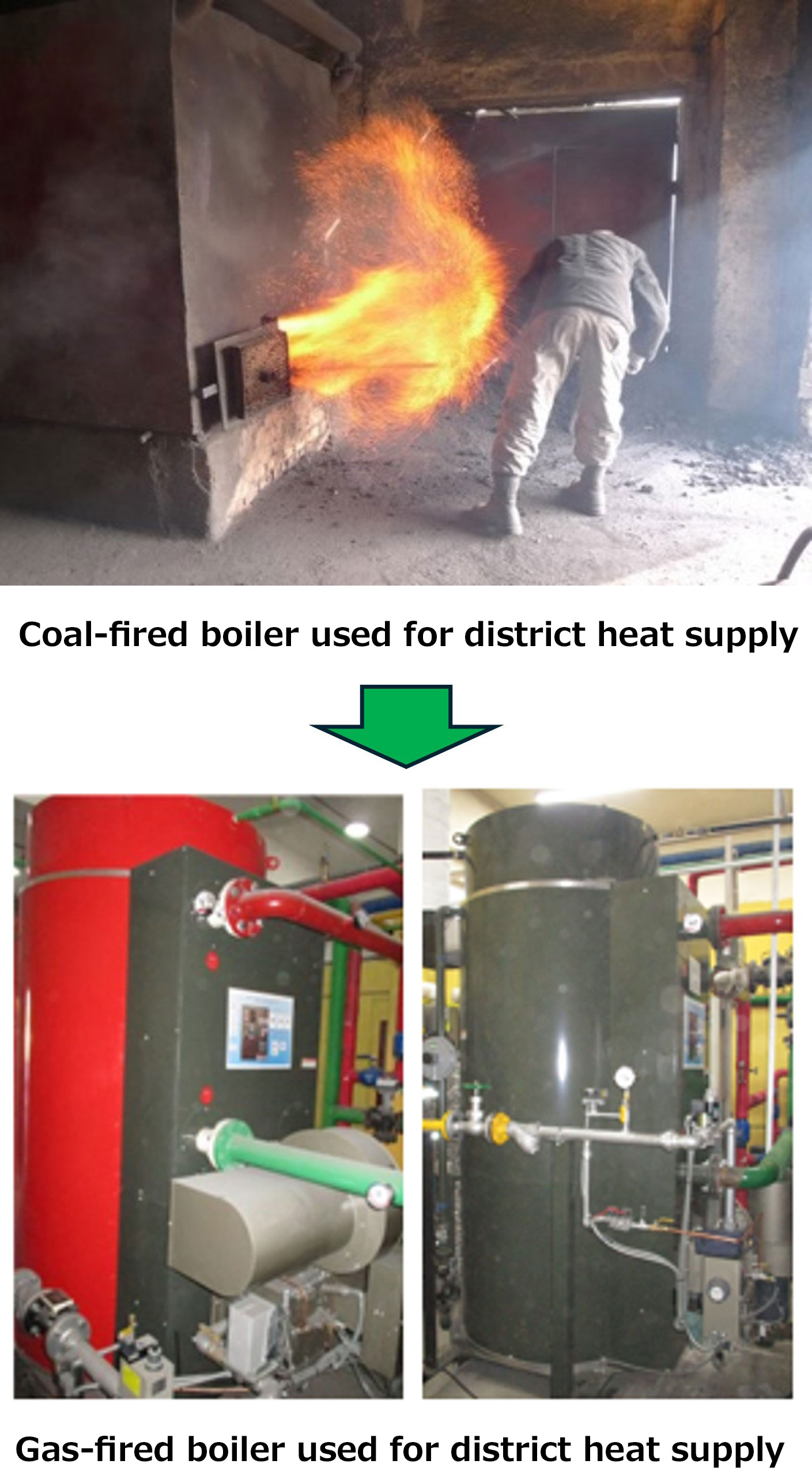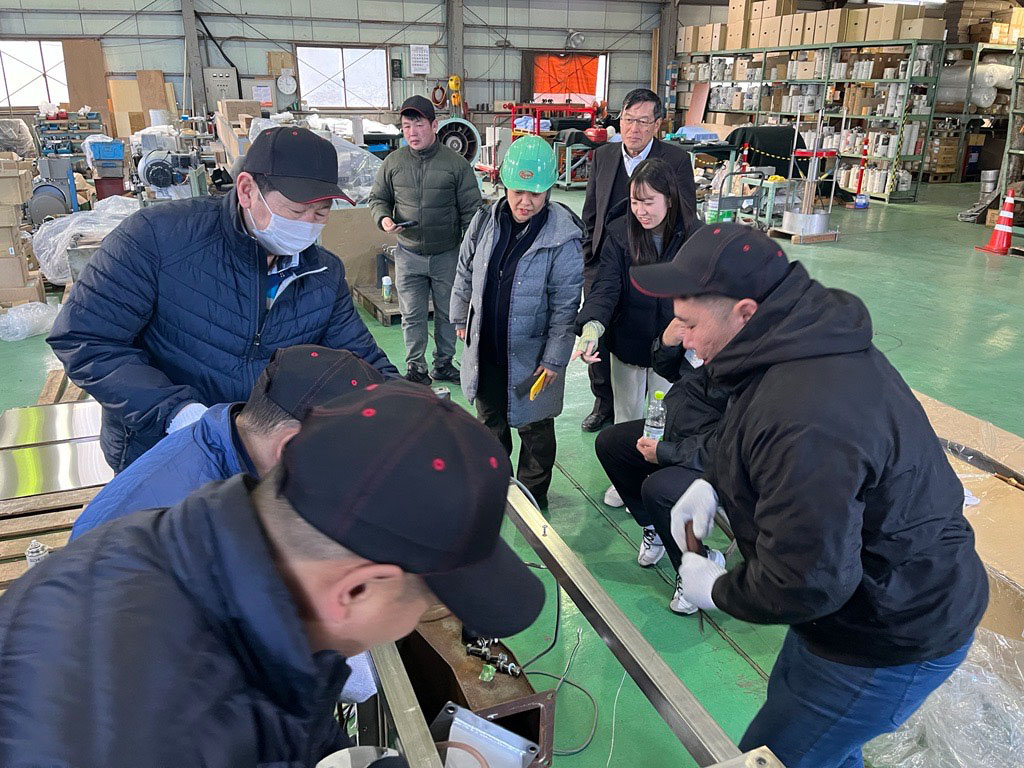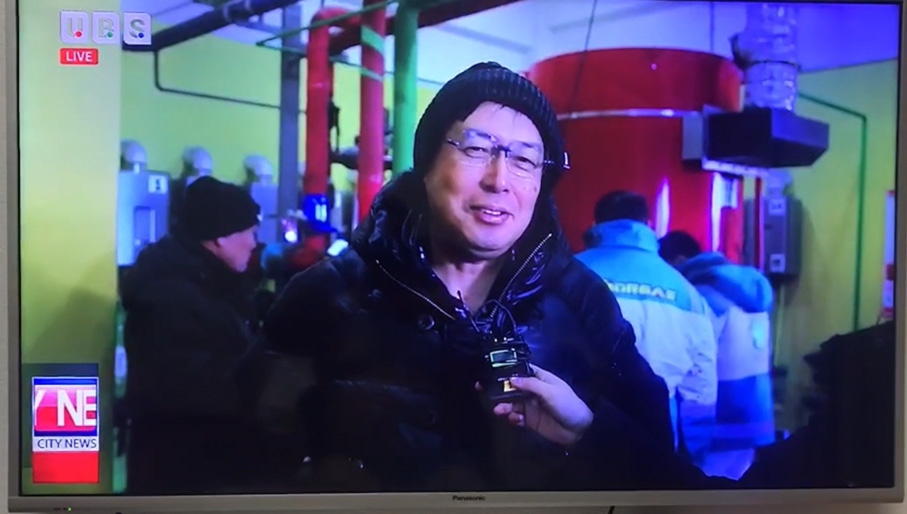Roles of the OECC
Under the environmental cooperation framework of the Ministry of the Environment, Japan, the OECC is working on air pollution problems in Ulaanbaatar and other cities in Mongolia in cooperation with the Mongolian Ministry of Environment and Tourism, the Ministry of Energy and the City of Ulaanbaatar.
Specifically, we are working with the local government and Japanese companies to convert the local coal-fired heat supply systems – which cause air pollution – to highly efficient Japanese gas-fired systems. The boilers from Japan have been installed in local elementary schools and kindergartens, gradually reducing the air pollution.
The OECC was in charge of identifying and analyzing local issues which included research on policies and government trends, coordinating with Japanese companies to manufacture boilers for Mongolia, handling customs clearance for exports and coordinating installation of boilers. In the future, we will also utilize the Joint Crediting Mechanism (JCM) to horizontally deploy facilities that are less likely to emit air pollutants over a wider area.


